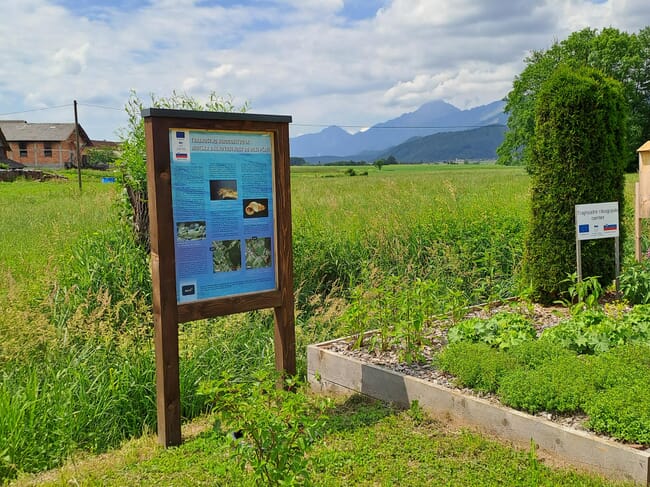
The Vodomec trout farms, located in the Gorenjska region of Slovenia are ideally situated for aquaculture, with the nearby mountains providing an abundance of clear, cold water. However, over recent years, droughts and decreasing oxygen levels caused by high temperatures have led to the closure of several pools at the farm, and in 2023 severe floods washed away the majority of the farm’s trout population.
Seeking to overcome the new challenges presented by the changing global climate, the farm owners decided to install pond aerators, in case of future high temperatures. This, however, would significantly increase the farm’s electricity consumption and so, with the help of the European Maritime and Fisheries Fund, the company invested in solar panel installation.
Catching the attention of the Fisheries Local Action Group (FLAG), the regional scope of the project was then increased. Six trout farms within the FLAG area subsequently underwent energy audits, helping to reduce the load on local power stations. Additionally, audits of water usage helped the trout farms to better manage their water resources during drought seasons.
The project also sought to reduce fish processing waste, making available a waste dehydrator for local fish farms. The dehydrator extracts up to 80 percent of the water content of processing waste, greatly reducing the volume handed over to waste management companies.
Biodiversity and social engagement
In addition to the efforts of the project leaders to improve farm efficiency, efforts have also been made to have a positive impact on local communities. Through the project, the farm is now a training centre for sustainable fish farming, and also provides a teaching site for veterinary students from the University of Ljubljana.
“Before the project we didn’t pay attention to the local area and community – we simply did not think it was very important. Now we know that communication with the local community and the networks in the area are very valuable. The educational and awareness-raising activities take a lot of work, but also provide good opportunities for promotion as well as feedback,” said Janez Vidmar, director of Vodomec, in a press release.
In order to engage with local communities further, the fish farms set up a garden full of nectar-rich plants in order to provide a haven for local insects. Through educational workshops, the farmers helped to inform local children about the importance of biodiversity and conservation.




